‘Students Are What Matters.They Are the Reason We Exist’
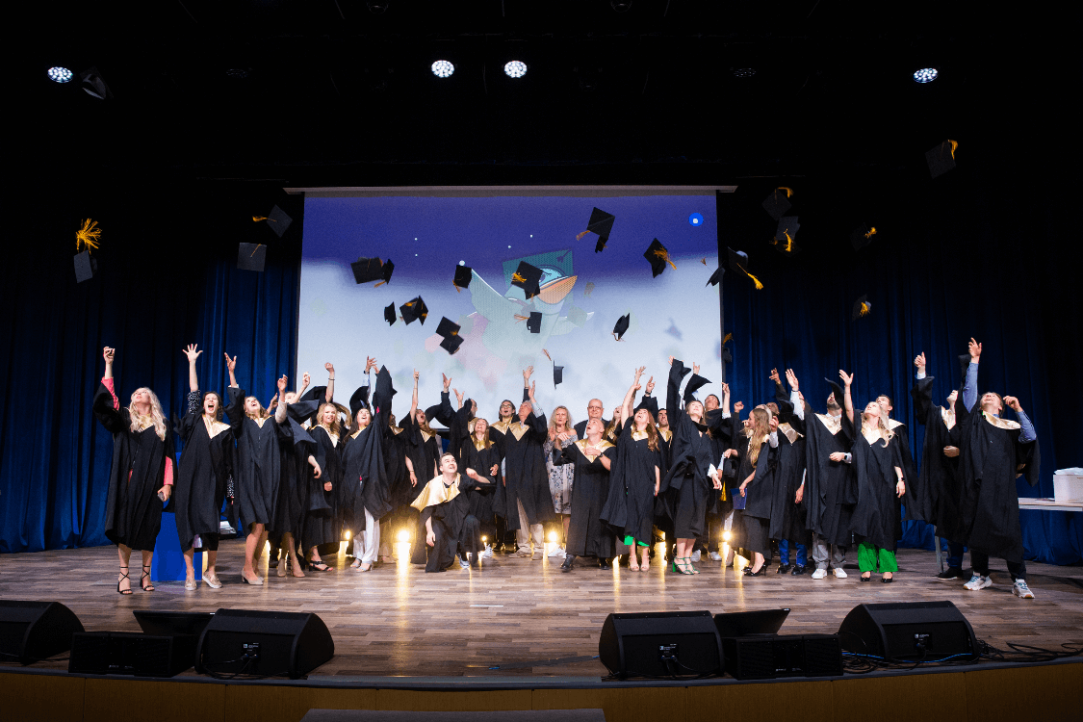
On July 18, the graduation ceremony for Master’s students in Corporate Research, Development and Innovation Management took place to coincide with the 10th anniversary of the programme’s launch. The students were able not only to receive their diplomas, sample delicious cake and take pictures, but also to mingle with graduates from previous years.
The graduation ceremony was held at HSE University’s Cultural Centre on Pokrovsky Boulevard. After the presentation of diplomas to students, graduates of previous years' programmes came out onto the stage. They spoke about their experience, the knowledge they had acquired during their studies at HSE University, and how this knowledge subsequently helped them to become successful and build dream careers.
Andrey Polozov-Yablonsky, Advisor to the CEO for Innovative Development at Aeroflot, who regularly chairs the State Certification Board (SCB) at the programme's graduation theses, noted that graduates of this programme have a significant advantage in the labour market and that he has been working with many of them for quite some time. ‘There were six graduates on the stage here today; a third of them are people I have been working with for quite some time. Judging by these graduates, you have all received a brilliant education here, because years after completing the programme, alumni show remarkable qualities in their work, including knowledge, skills, abilities, creativity and initiative,’ said Andrey Polozov-Yablonsky, addressing the newly minted innovators.
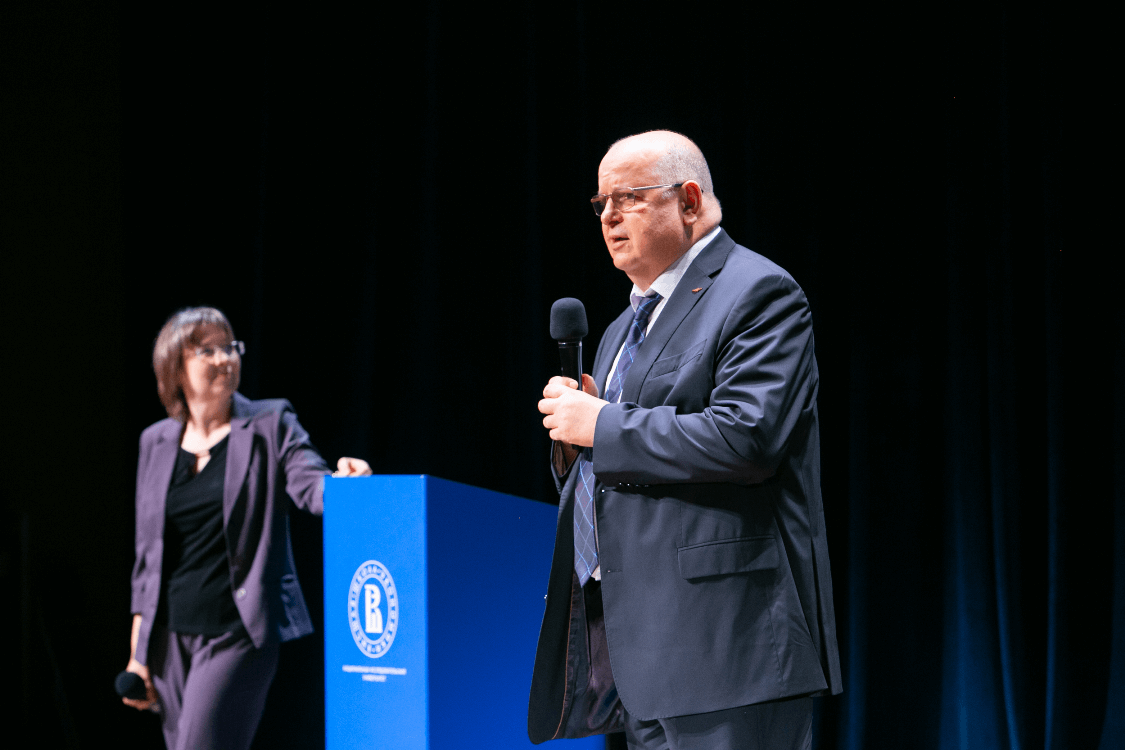
Although the first intake of the Master's in Corporate Research, Development and Innovation Management was 10 years ago, this year’s graduation was only the seventh. ‘The first 2 years were 2.5 years of part-time study,’ comments Igor Agamirzyan, HSE University Vice President, Head of the Department of Innovation Management, and Professor. ‘Accordingly, a year was missed, and today is the fifth graduation since I headed the department founded by Ivan Mikhailovich Bortnik.’
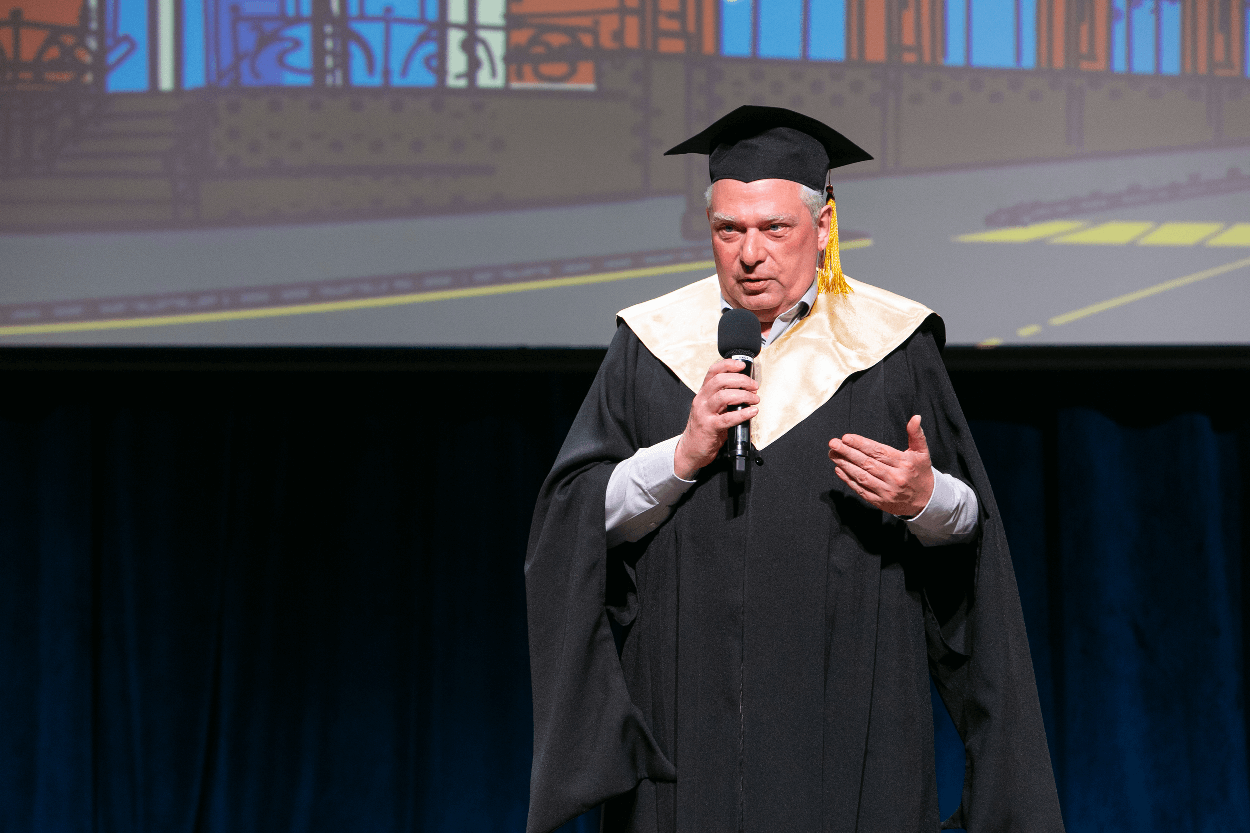
Igor Agamirzyan said that the idea of creating the Department of Innovation Management came about due to the need to train not only general engineers and managers, but also specialists capable of effectively managing engineering processes. ‘Graduates of the programme really understand what innovation processes are, how hard and soft skills and abilities are connected, because any research, any development in business is a combination of hard and soft skills. A traditional engineering degree provides high-quality hard skills, but very few soft skills. The opposite is true in business schools, where soft skills such as communication skills and teamwork are emphasised to a large extent, but insufficient attention is paid to the topics covered here on our programme. After all, business is about far more than just money; the financial component of business is essential, but that alone is not enough,’ he says. The professor noted that graduates of this programme are successfully working at the intersection of these two areas.
Igor Agamirzyan stressed that ‘Students are what matters. They are the reason we exist’.

Evgeniy Savelyonok, Deputy Head of the Department of Innovation Management, also recalled the creation of the Corporate Research, Development and Innovation Management programme. ‘When we started, there was almost nothing, at least in the immediate educational space; we started unexpectedly, abruptly, completely without preparation. I'll let you in on a little secret—I was a staunch opponent of opening the programme, because I thought it was too innovative in the short time we had planned to create it,’ says Evgeniy Savelyonok. He also noted that there were many difficulties at the initial stage of launching the educational programme: ‘It was difficult to find a balance between theory and practice, but we see you today and we understand that our idea was a success,’ said the Deputy Head of the Department.
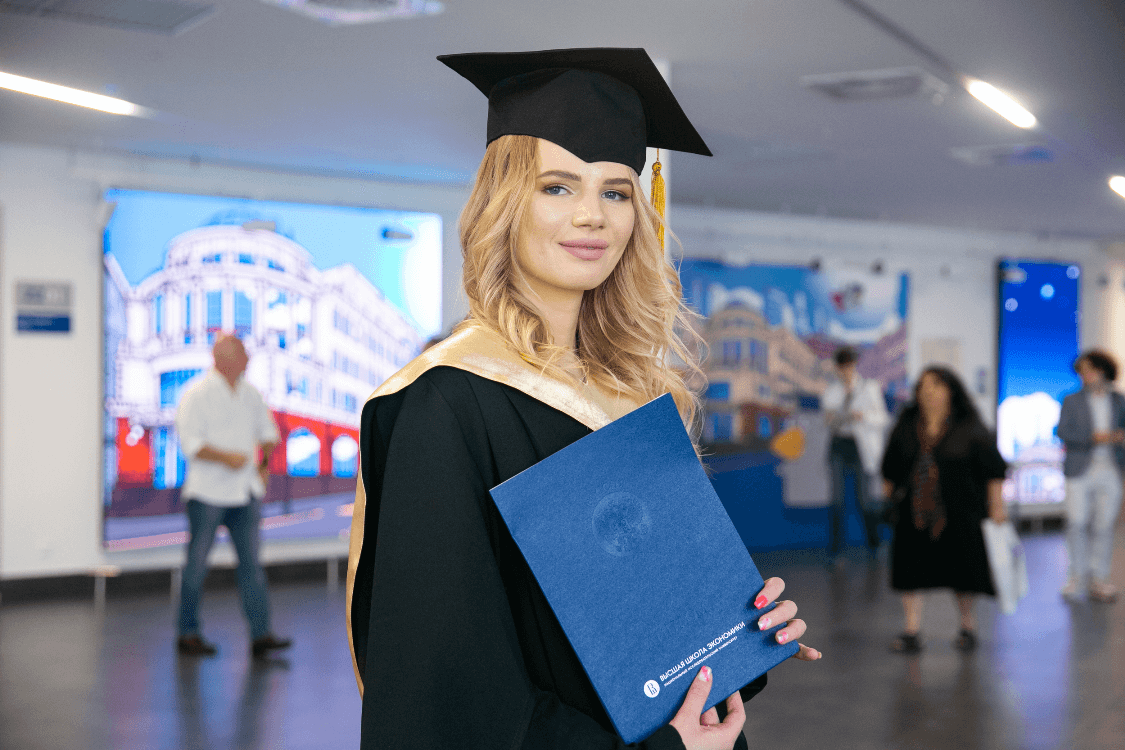
Graduate Ekaterina Filatkina found out about the Master's Programme in Corporate Research, Development and Innovation Management by chance when she was finishing her Bachelor's degree in Ecology in 2019. Even though Ekaterina hadn't previously been involved in IT, innovation and management, she still decided the programme would be interesting: ‘My dream was to go to HSE University, and I looked at different programmes for a long time until I found the Corporate Research, Development and Innovation Management programme. I thought that I would be interested in this programme, but I did not get in on the first attempt: I was 26th in line for the 25 state-funded places. I really enjoyed my studies. The emotions I am feeling now, having graduated from the Master's programme and holding my diploma in my hands, are incredible.’
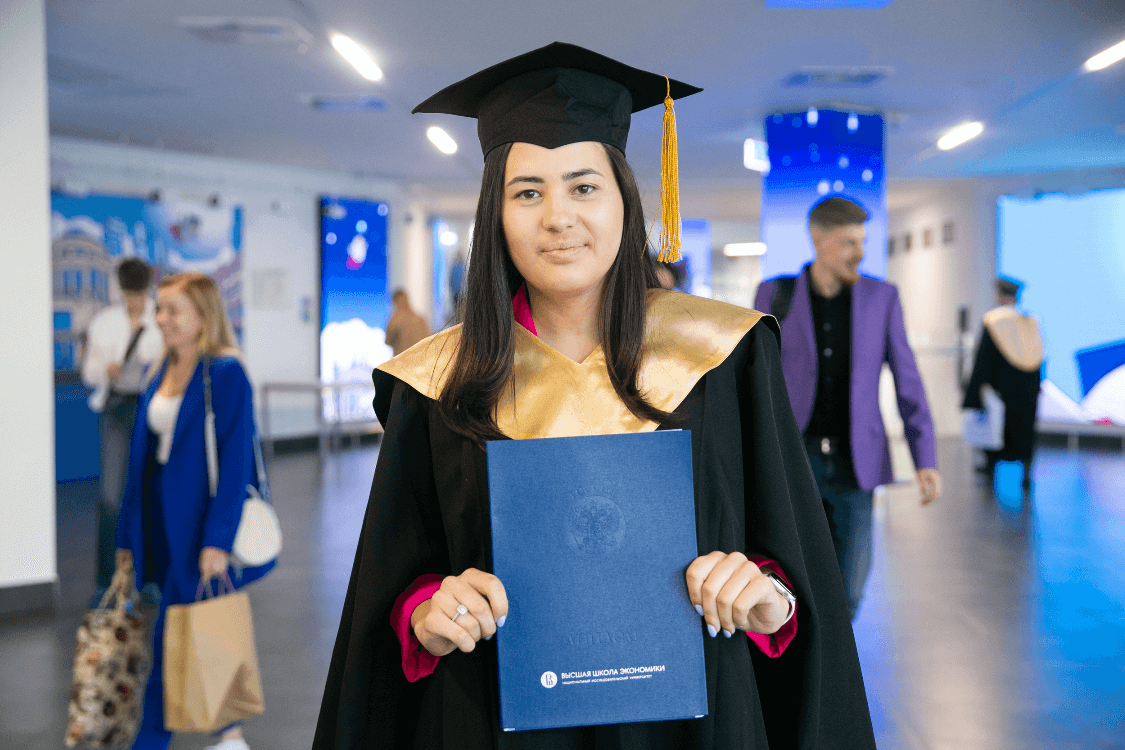
Just like Ekaterina, graduate Evgeniya Kozlova found out about the existence of the Master's programme by chance, through a round table in the State Duma, where a meeting of the Expert Council on Education was held with the participation of representatives of the department. She is happy with her HSE University education: ‘There is a great attitude to students at HSE University—"the student is the educational subject”. They listen to students, support them, are open to any questions and support their professional development—that was important for me. Among the positive aspects of the programme are the team, student interaction, the group and the learning process—not only the lecture and seminar format, but also the project activities.’ In the future, Evgenia is already planning to enrol in postgraduate studies.
‘I found out about the Master's programme when I was in the third year of my bachelor's degree, looking for a specialisation in order to continue my studies in a similar field,’ says Vasiliy Solomkin, graduate of the Department of Innovation Management.
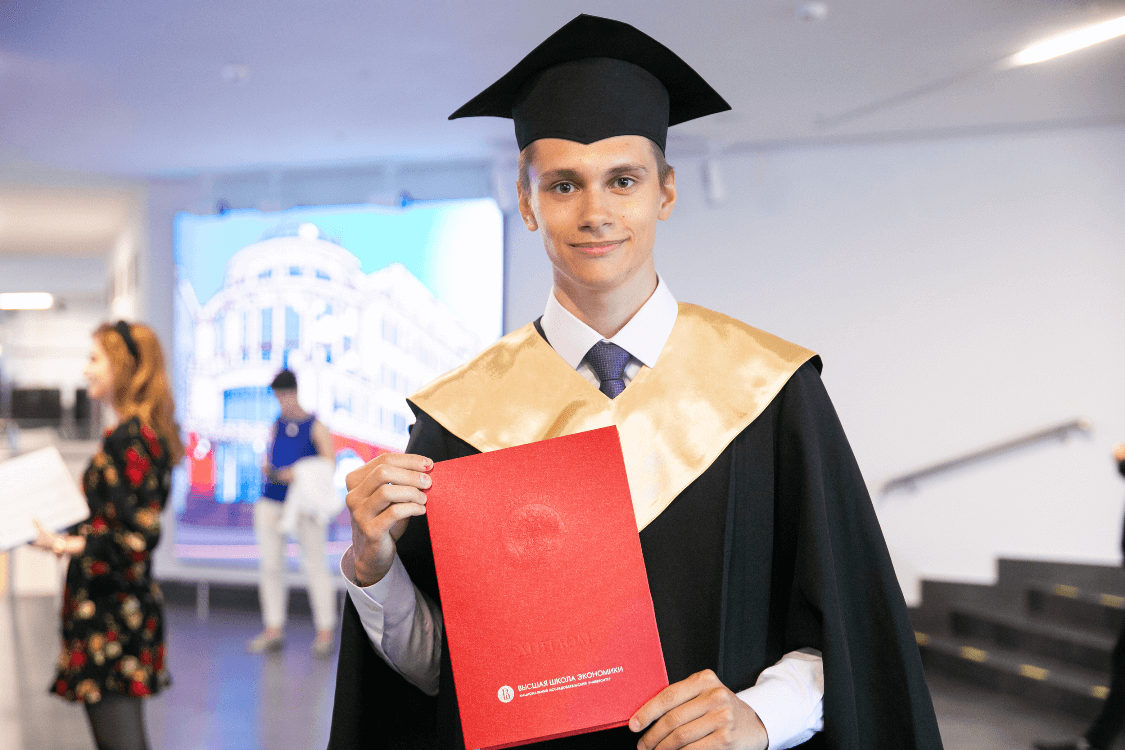
Vasiliy's parents were positive about his decision to study at HSE University, but they were worried that the university was serious and that admission would be difficult. ‘There were deadlines,’ he says. ‘I was definitely applying for a Master’s degree at another university; it was not clear whether I would be accepted by HSE University and it was a hard decision to make. My parents were worried about that, but they liked the idea and supported me.’
Regarding the positives of the programme, Vasiliy says: ‘The greatest value of the programme, of student life, of the events is the people you get to know, who study here. I tried to correlate the difficulty of getting into the programme with how difficult it is to study, because I barely made it into the programme, but I ended up graduating with honours, so everything is great for me. But this tough competition goes a long way towards making sure you have some really cool people around you. That's the most enormous value.’
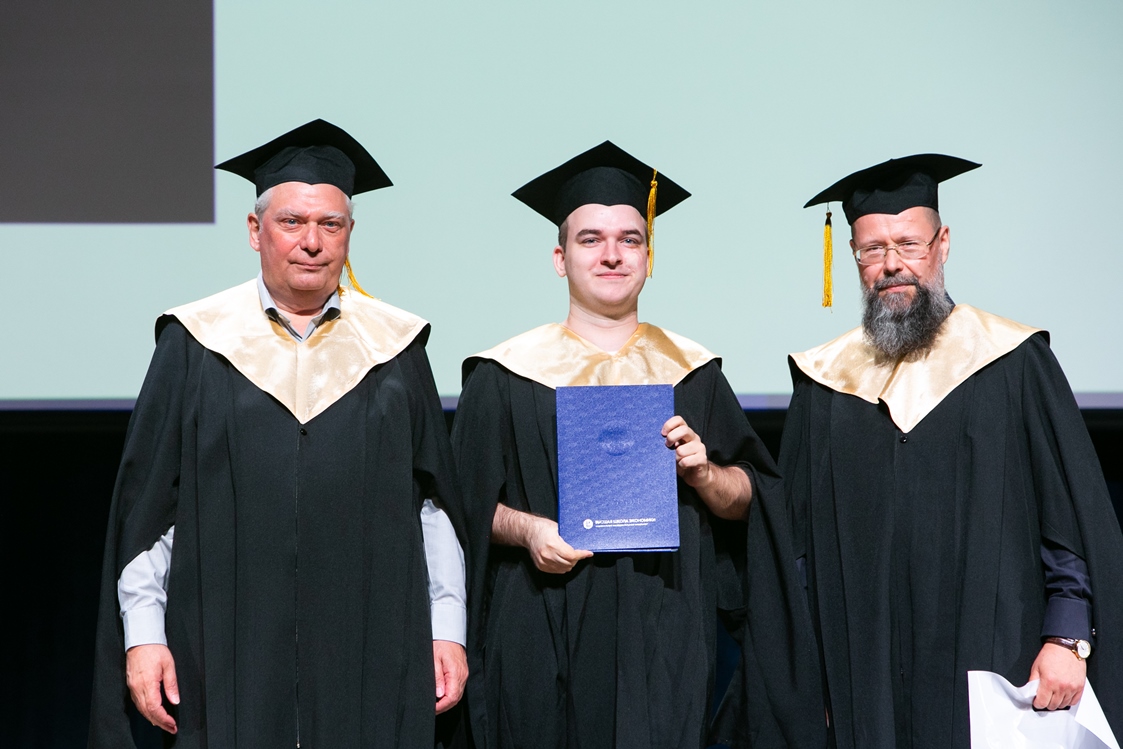
For graduate Pavel Vasiliev, studying for a master's degree was quite an interesting experience. ‘We got caught up in the COVID wave and studied exclusively online. Personally, it was much easier for me, as I generally find it easier to study online. I didn't experience any difficulties; it was even easier than if I had studied as usual,’ says Pavel Vasiliev. He also enjoyed the practical aspects of the education, as he found those the most useful.
In addition to the master's degree programme, the Department of Innovation Management also implements basic bachelor's degree programmes and further professional education in the field of R&D and innovation management in companies, innovation infrastructure organisations, research and educational institutions, also in the field of innovative and technological entrepreneurship.
Graduates acquire managerial and economic knowledge and skills that prepare them to work successfully in fields such as the development and launch of new products onto the market, project management with an innovative component, and innovation management in general. They occupy positions ranging from highly qualified specialists to managers, quickly climb the career ladder, and make tangible contributions to the development of their companies and entire industries.
Igor Agamirzian
HSE Vice President
Evgeniy Savelyonok
Associate Professor, Department of Educational Programmes

